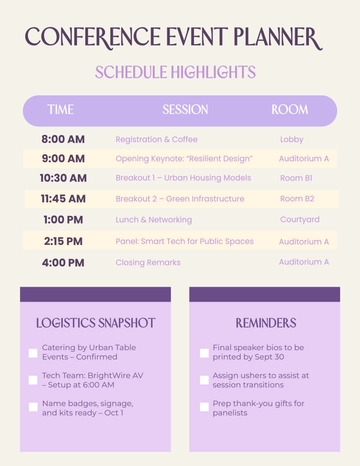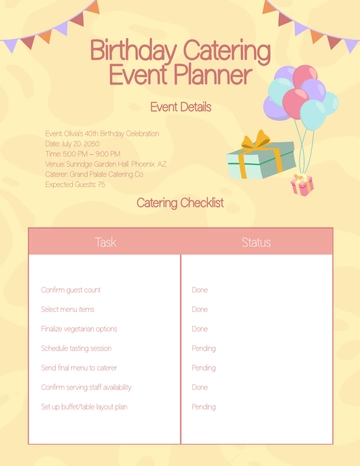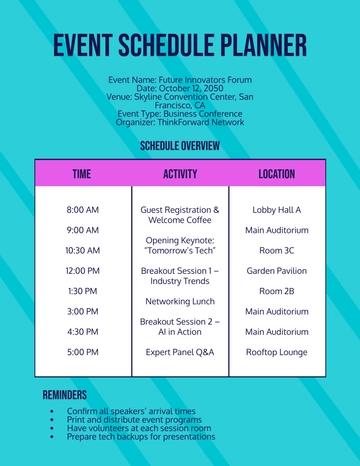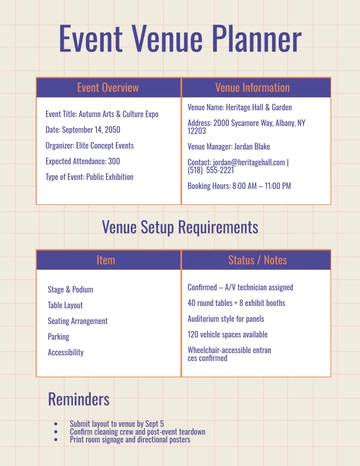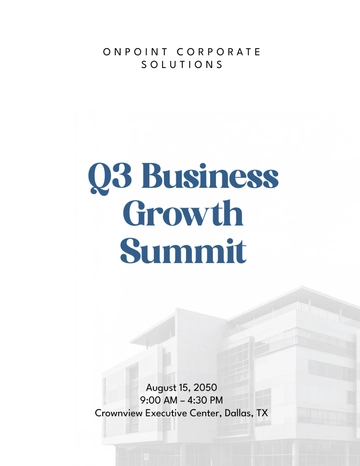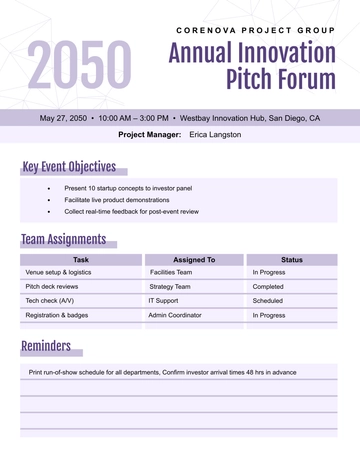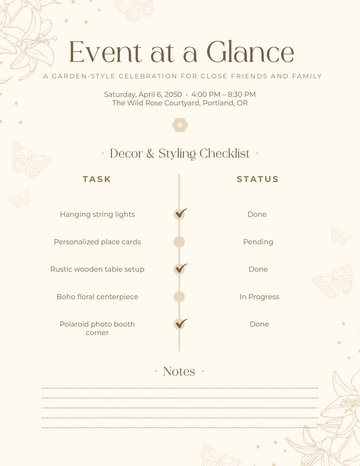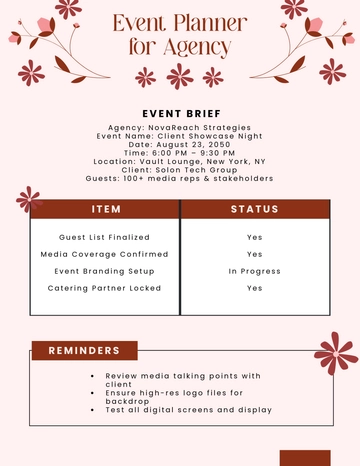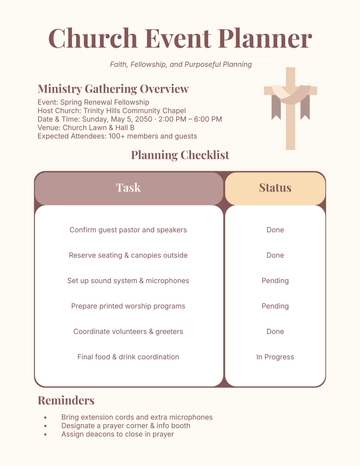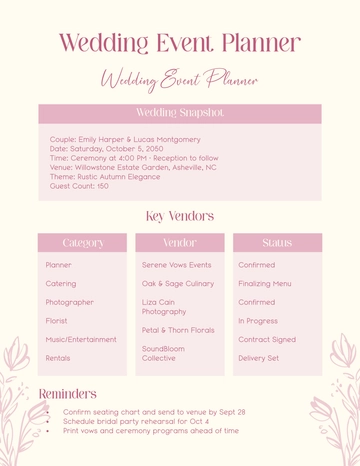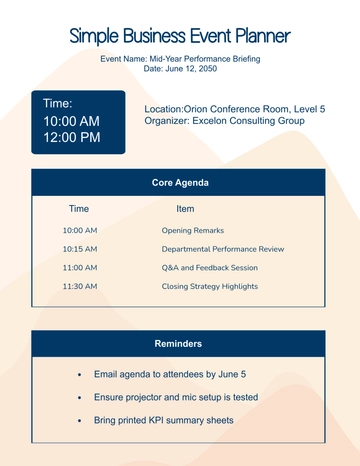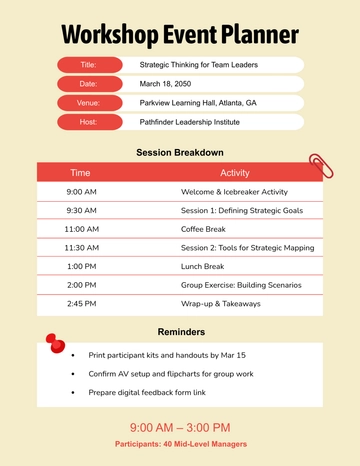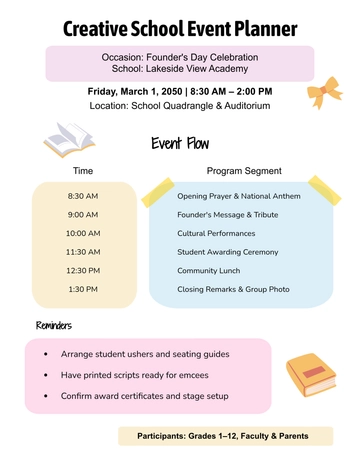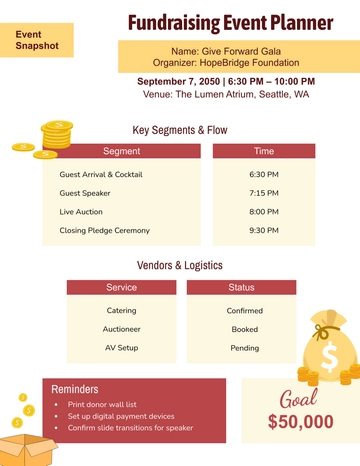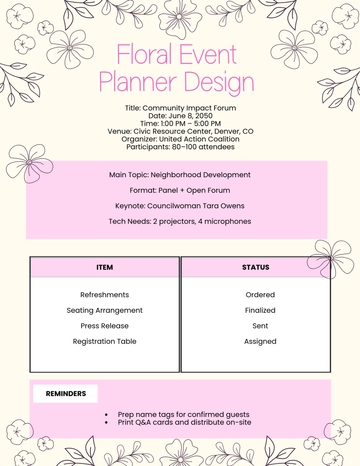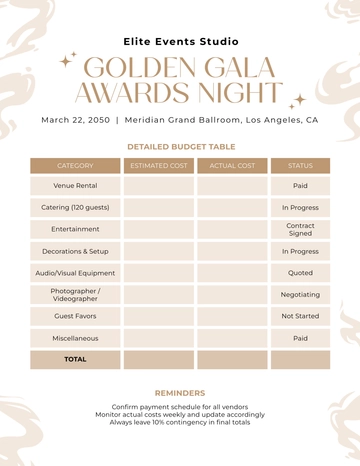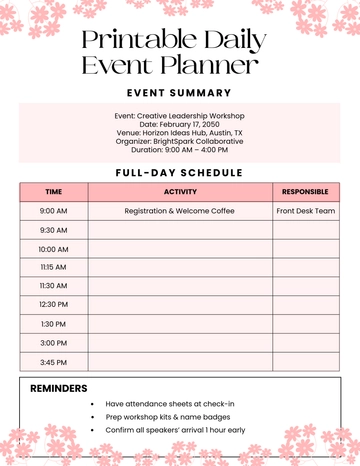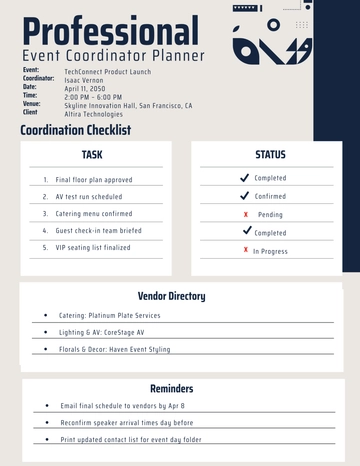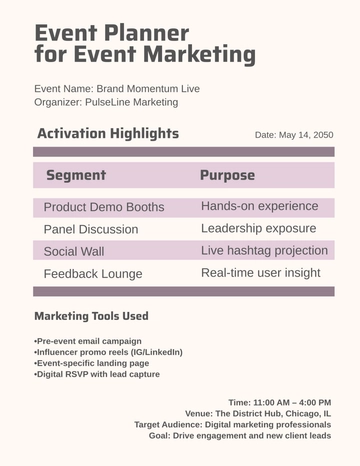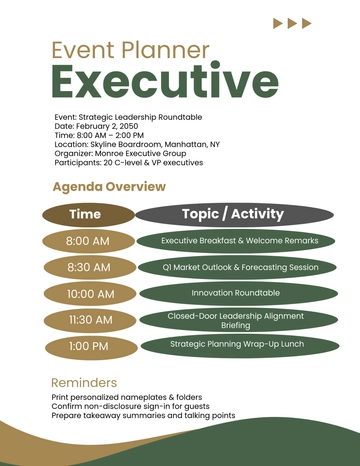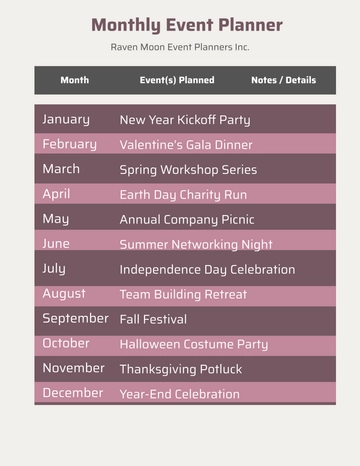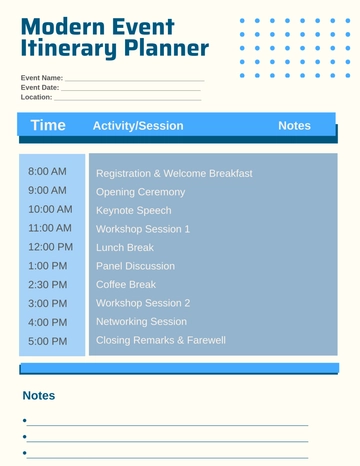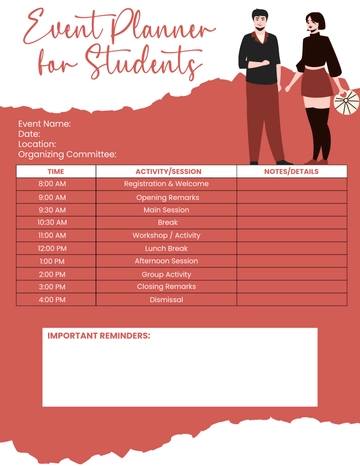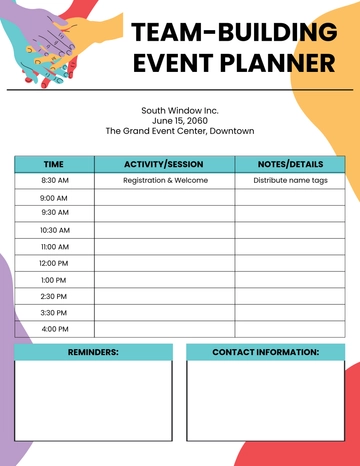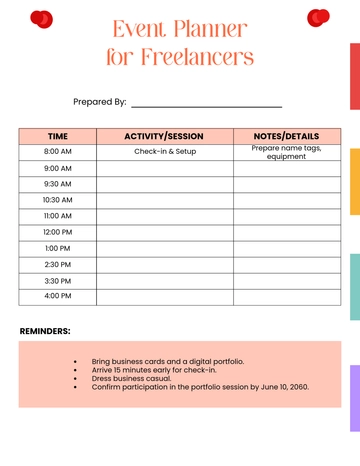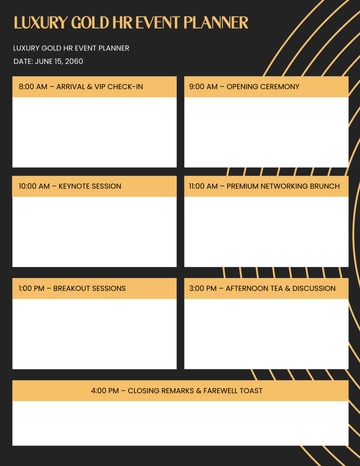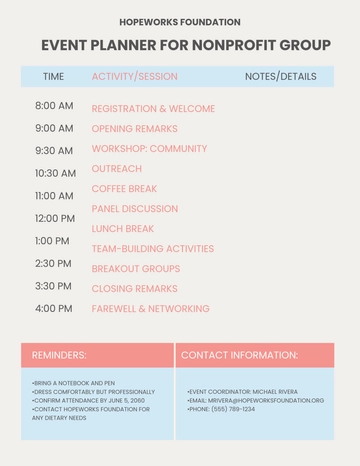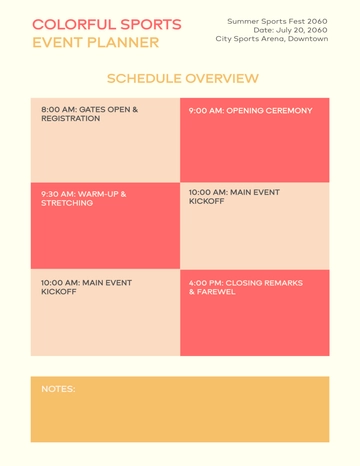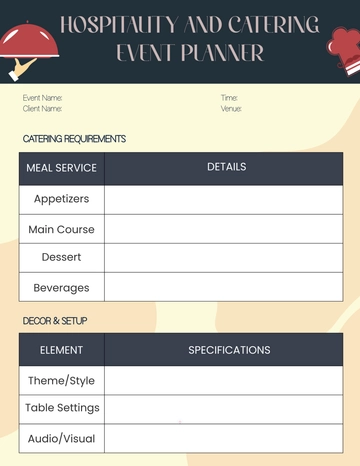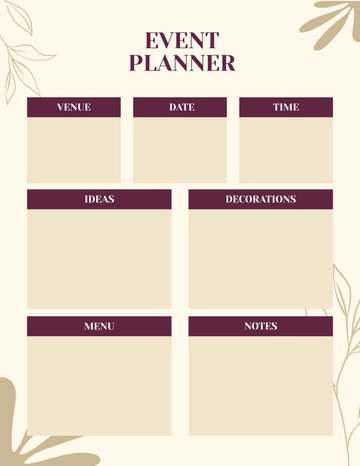Free Event Planner Criteria
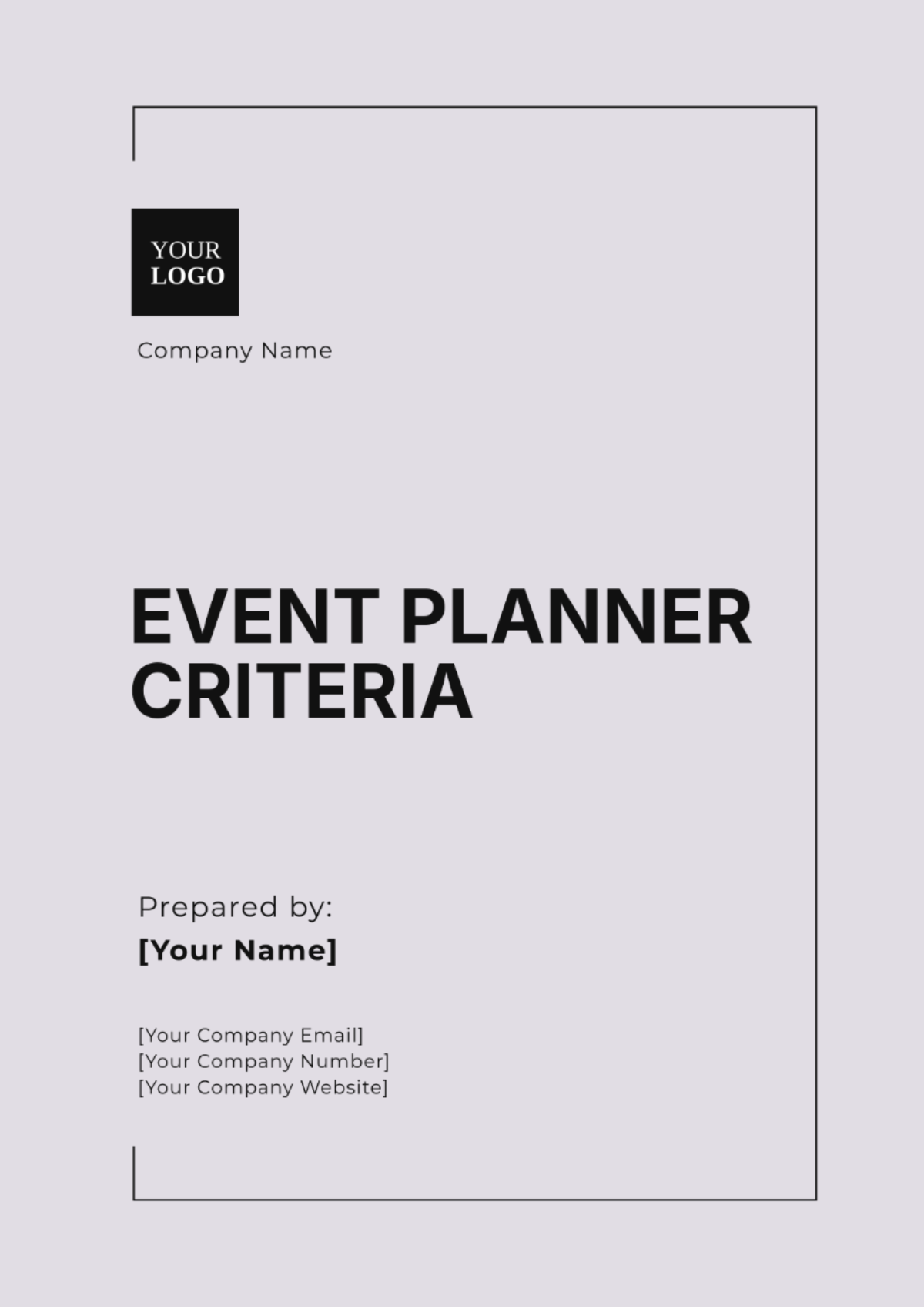
Prepared by: [Your Name]
Date: November 1, 2050
Introduction
This document outlines the essential criteria for evaluating event planners. It aims to provide a standardized approach to assessing the qualifications, skills, and competencies required for successful event planning. This ensures that the selected event planner can effectively manage and execute events to meet client expectations and organizational goals.
Purpose
The purpose of these criteria is to:
Identify key qualifications and skills needed for effective event planning.
Provide a clear and structured evaluation framework for assessing potential event planners.
Ensure that event planners meet high standards of professionalism and capability.
Scope
These criteria apply to event planners responsible for planning, organizing, and executing events of various sizes and types, including corporate events, weddings, conferences, and social gatherings. The evaluation process encompasses both qualitative and quantitative measures to ensure a comprehensive assessment of each candidate’s suitability.
Criteria | Description | Weight | Rating |
|---|---|---|---|
Experience | Experience in planning and managing various types and sizes of events. | 20% | |
Creativity | Ability to generate innovative ideas and themes for events. | 15% | |
Organizational Skills | Proficiency in managing multiple tasks, timelines, and resources efficiently. | 15% | |
Attention to Detail | Precision in managing every aspect of the event to ensure nothing is overlooked. | 15% | |
Budget Management | Experience in creating and adhering to budgets, including negotiation with vendors. | 15% | |
Communication Skills | Effective verbal and written communication with clients, vendors, and team members. | 10% | |
Problem-Solving Skills | Quickly and effectively resolve issues during event planning. | 10% | |
Vendor Relationships | Established connections with reliable vendors and suppliers. | 5% | |
Customer Service | Ability to understand and meet the needs and expectations of clients. | 10% | |
Flexibility | Willingness to adapt to changing circumstances and client requests. | 5% |
Rating System Scale
1 (Poor): Fails to meet the basic requirements; significant improvements needed.
2 (Fair): Meets some requirements but has noticeable deficiencies; improvements are needed.
3 (Good): Meets most requirements; satisfactory performance with minor areas for improvement.
4 (Very Good): Exceeds requirements in several areas; minor improvements may be needed.
5 (Excellent): Exceeds all requirements; outstanding performance with no significant areas for improvement.
Evaluation Process
Review of Qualifications: Assess the candidate’s resume and credentials to verify relevant experience, certifications, and educational background.
Interview Assessment: Conduct interviews to evaluate communication skills, problem-solving abilities, and creativity.
Skills Testing: Use practical tests or simulations to assess organizational skills, attention to detail, and budget management capabilities.
Reference Checks: Gather feedback from previous clients or employers to validate experience and performance.
Vendor and Client Feedback: Obtain insights from vendors and clients to assess the planner’s effectiveness in managing relationships and delivering on client expectations.
- 100% Customizable, free editor
- Access 1 Million+ Templates, photo’s & graphics
- Download or share as a template
- Click and replace photos, graphics, text, backgrounds
- Resize, crop, AI write & more
- Access advanced editor
Elevate your event planning with the Event Planner Criteria Template from Template.net. This versatile, customizable template is fully editable in our AI Editor Tool, allowing you to tailor it to your unique needs. Simplify your workflow and ensure every detail is meticulously organized with this easy-to-use, editable solution. Perfect for flawless event management!
You may also like
- Aesthetic Planner
- Hourly Planner
- Daily Planner
- Weekly Planner
- Monthly Planner
- Planners Yearly
- Event Planner
- Project Planner
- Calendar Planner
- Student Planner
- School Planner
- Teacher Planner
- Kawaii Planner
- Budget Planner
- Life Planner
- Meal Planner
- Study Planner
- Business
- Workout Planner
- Work Schedule Planner
- Party Planner
- Social Media Planner
- Baby Shower Planner
- Book Planner
- Planner Cover
- Debt Planner
- Desk Planner
- Diet Planner
- Family Planner
- Fitness Planner
- Goal Planner
- Health Planner
- Medical Planner
- Holiday Planner
- Homework Planner
- Itinerary Planner
- Journal Planner
- Personal Planner
- Route Planner
- Smart Goal Planner
- Travel Planner
- Wedding Planeer
